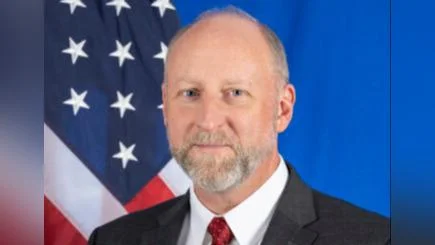The United States has expressed appreciation for the Organization of American States (OAS) and Secretary General Ramdin for their efforts in developing a draft roadmap aimed at promoting peace and stability in Haiti. U.S. representatives emphasized the importance of security as the foundation for any progress in the country.
"We welcome the urgency with which this roadmap was developed. As we have told the Secretary General: in Haiti, security must be the top priority. Without it, no other pillar can stand," stated U.S. officials during remarks to the OAS Permanent Council.
The United States highlighted that restoring a minimum level of security is essential given the threats Haiti faces from terrorists, organized criminals, insurgents, and gangs. The revised version of the roadmap was noted for its clearer structure and intent, specifically establishing security as an enabling condition for further developments.
"In particular, the deployment of HNP and international security forces to regain territorial control and secure key corridors is recognized as essential for immediate stabilization—a prerequisite for elections and the broad provision of humanitarian assistance, as well as the resumption of basic day-to-day activities, like getting kids off to school, and parents back to work," according to U.S. remarks.
The U.S. thanked Kenya for its leadership in supporting Haiti over the past year by deploying personnel far from home to help prevent state collapse. Additional thanks were extended to The Bahamas, El Salvador, Belize, Guatemala, Jamaica, and Canada for their respective contributions.
"Kenya answered Haiti’s call at a critical moment, demonstrating enormous compassion and courage, putting its people in harm’s way thousands of miles from home, and preventing a complete collapse of the Haitian state. We would also like to thank The Bahamas, El Salvador, Belize, Guatemala, and Jamaica, for contributing personnel towards this effort, and to Canada for their sizable contribution to the UN Trust Fund and planning efforts. As we look to combat the threat of terrorist gangs looking to topple the State, we must ensure that an even greater share of the international community is invested in the fight."
The United States announced plans with Panama to seek authorization from the United Nations Security Council for a UN Support Office dedicated to resourcing these efforts further. "Should the UN Security Council pursue this model, then we will also seek robust regional participation to provide strategic leadership of the force," said U.S. officials.
There was emphasis on ensuring future international forces are able not only to hold territory but also secure infrastructure while working alongside Haitian National Police (HNP). A comprehensive approach was called for in disrupting gang financing and arms trafficking that contribute to instability.
Budget improvements within the roadmap were acknowledged by U.S. representatives who welcomed clarity on donor coordination but noted that funding remains insufficient in some areas: "While we welcome the clarification that the figures provided represent 'needs' rather than a budget, we note that the security pillar remains underfunded."
Officials stressed that clear strategies are needed if Haitian institutions cannot act independently and called on OAS mechanisms to coordinate multilateral support effectively.
On political matters, there was support expressed for Haitian-led dialogue: "We expect the Transitional Presidential Council to fulfill its mandate to make meaningful progress towards securing the country and to prepare for elections." The OAS's role in providing technical assistance as conditions allow was also recognized.
Human rights considerations were integrated into discussions about democracy-building efforts guided by relevant Inter-American instruments: "We welcome the stronger integration of respect for human rights in the draft and its reaffirmation of commitment..."
The strengthened role envisioned for OAS includes acting as facilitator among hemispheric partners with regular reporting mechanisms established: "A follow-up mechanism...is vital for accountability..."
Finally, U.S. officials urged immediate prioritization of mission-critical needs over phased planning due to Haiti’s ongoing crisis: "Mission-critical needs must be prioritized immediately..."
"The United States looks forward to continuing this important conversation and working with all partners toward a more stable, democratic, and secure Haiti."

